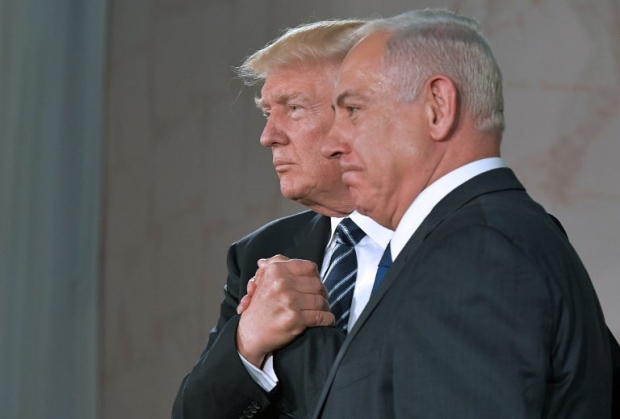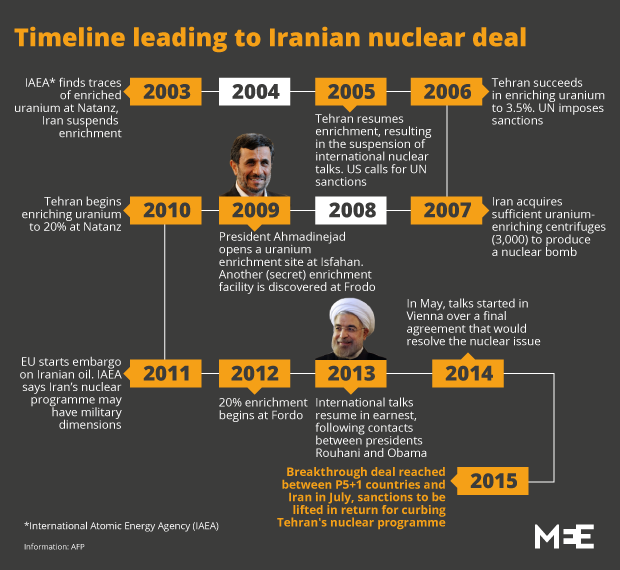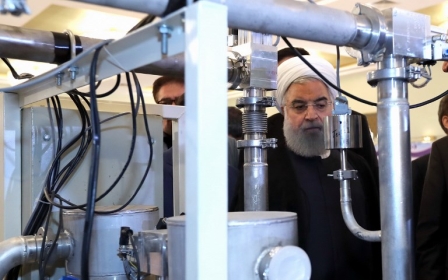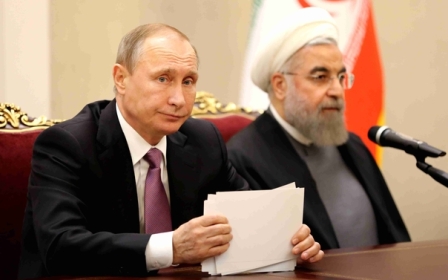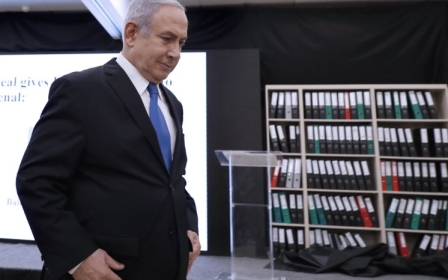Will Iran fold like North Korea's Kim Jong-un?
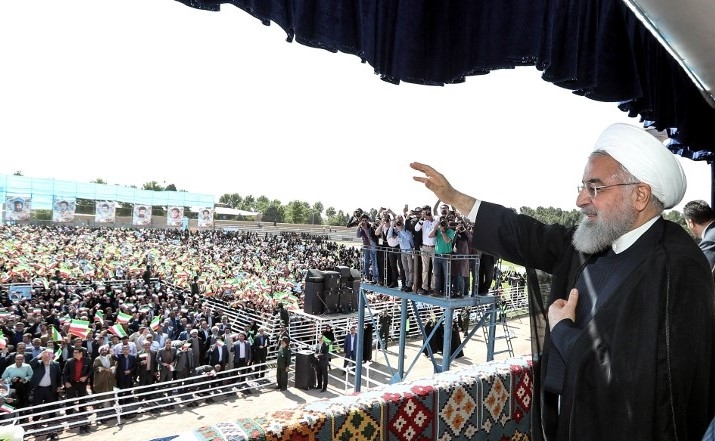
In September 2017, under the leadership of Kim Jong-un, North Korea detonated a nuclear bomb that was almost seven times the size of the bomb that destroyed Hiroshima, Japan, in 1945.
Two months later, the North Koreans tested an intercontinental ballistic missile that, according to scientists, had more than enough range to reach Washington DC. Tension between Washington and Pyongyang was elevated to new heights.
Different theories
Against this backdrop, North Korea's spectacular conciliatory move, by announcing the halting of its nuclear and missile tests as of 21 April, caught the world of politics by surprise. The announcement was followed by Kim meeting with South Korea's president, Moon Jae-in. In the meeting, the leaders vowed "complete denuclearisation" of the Korean peninsula.
Several different theories have been offered as to why Kim suddenly decided to make such a move. The more plausible theory is that North Korea's escalation last year was calculated. According to this theory, Kim elevated tensions to force the Americans and the South Koreans to come to the negotiating table at a time when his country could negotiate from a position of strength.
Trump's intention of abandoning the deal and reinstating the sanctions is nothing short of an ultimate move toward regime change
This plan, albeit at a smaller scale, was exactly what Iran pursued between 2005 and 2015, when the nuclear negotiations leading to the Iran nuclear deal began.
In 2005, nuclear negotiations between Iran's team and the Europeans collapsed because Iran was informed that the US would not accept even one centrifuge spinning in Iran for uranium enrichment (highly enriched uranium is used for building atomic bombs). "Zero enrichment in Iran," the Iranians were told.
From 2005 to 2015, tensions between Iran and the US ran very high, as Iran expanded the number of its centrifuges from 164 to 19,000, increased the level of uranium enrichment from three percent purity to 20 percent (90 percent enrichment is necessary for a nuclear bomb), and built an additional underground enrichment facility under a mountain.
As with North Korea today, Iran was under immense pressure as a result of nuclear sanctions. In 2015, Iran accepted a deal to reduce the scale of its nuclear programme for 15 years while maintaining its enrichment programme in exchange for the easing of sanctions.
Regime change?
US President Donald Trump, among other issues that he has with Iran, argues that the "sunset clauses" in the Iran nuclear deal should be eliminated and restrictions on Iran's nuclear programme should become permanent. Otherwise, says Trump, after 15 years Iran would be able to move toward obtaining a nuclear bomb.
Experts believe that the Iran deal is loaded with "additional restrictions and transparency measures" that "will provide the international community with a powerful set of tools to promptly detect and deter an Iranian attempt to pursue nuclear weapons well beyond the initial 15-year period".
Trump's intention of abandoning the deal and reinstating the sanctions is nothing short of an ultimate move toward regime change. Mike Pompeo, his secretary of state, and John Bolton, his national security adviser, are both relentless advocates of regime change in Iran as well.
The deadline for Trump's looming decision regarding whether to reinstate economic sanctions on Iran is on 12 May. If sanctions have tamed a nuclear, indomitable regime such as North Korea, Trump and his administration may argue that the same outcome vis-a-vis Iran could very well be expected.
Trump and his team may expect that the Iranian government will bend under the pressure of sanctions and surrender to the US demands
Trump and his team may expect that the Iranian government will bend under the pressure of sanctions and surrender to the US demands, including permanent limitations on its nuclear programme, limitations on its ballistic missile programme, and retreating from its expanded and active role in the region, especially in Syria, which is perceived as a threat to Israel's security.
Alternatively, Trump and his team may expect Iran to resist, which would lead the country into chaos as a result of an economic downturn, and perhaps its ultimate collapse. Israel, Trump and his advisers most likely count on the continuation of the protests that occurred early this year in almost 80 cities in Iran, which were fuelled by economic hardships. Trump has put the future of the nuclear deal in doubt, which has led Iran's currency, the rial, to lose more than half of its value since last October.
This downturn occurred despite the Iranian government outlawing the trading of dollars in the open market and setting an official exchange rate of 42,000 rial, notwithstanding the US dollar trading at 63,000 rial on 5 May. Historically, increasing the price of foreign exchange rates – particularly that of US dollar – has been followed by rampant inflation.
Netanyahu's theatrics
First, according to an expert, "there was literally nothing new" in the trove of data that Israeli Prime Minister Benjamin Netanyahu theatrically revealed. Second, the information unveiled by Netanyahu with great fanfare showed no signs that Iran violated the landmark 2015 nuclear deal between Tehran and the world's six powers.
According to American officials, "nothing in the documents... changed the American intelligence judgment that Iran is living up to its agreement not to restart a nuclear weapons programme."In Europe, the reactions were even more disappointing for Netanyahu. Indeed, the Europeans argued that the documents that Mossad stole from Tehran underscored why the nuclear deal should remain intact.
Can Europe save the deal?
The overwhelming majority of experts maintain that Trump will leave the deal - meaning that Trump does not extend the sanctions waivers by 12 May – but Europe will most likely seek to preserve the agreement. If that occurs, two scenarios are likely to happen. First, as stipulated in the sanctions laws and sanctions-related executive orders, the Trump administration begins to enforce penalties on European companies that are doing business with Iran and the result would likely be a transatlantic trade war.
The second, and more likely scenario, is that the US leaves the agreement but postpones the enforcement of penalties, giving Europe a deadline to convince Iran to sign a revised or annexed agreement as requested and worded by the US.
The uncertainty caused by Trump's threats to leave the deal has already affected Iran's economy. As such, even in this scenario Iran would not receive the economic benefits that it expected to result from the deal without a formal collapse of the agreement.
Iranian officials from top down have repeatedly said that they will leave the agreement if the country does not benefit from remaining in it. This makes sense. That said, it can be read between the lines of the statements made by Iranian officials that as long as Iran can sell oil, it will not abandon the agreement.
The bottom line is that under Trump the Iran nuclear deal is on a trajectory for collapse and US-Iran conflict on the rise.
- Shahir Shahidsaless is an Iranian-Canadian political analyst and freelance journalist writing about Iranian domestic and foreign affairs, the Middle East, and the US foreign policy in the region. He is the co-author of Iran and the United States: An Insider’s View on the Failed Past and the Road to Peace. He is a contributor to several websites with focus on the Middle East as well as the Huffington Post. He also regularly writes for BBC Persian. He tweets @SShahisaless.
The views expressed in this article belong to the author and do not necessarily reflect the editorial policy of Middle East Eye.
Photo: Iranian President Hassan Rouhani addresses a rally in the northwestern city of Sabzevar (AFP)
Middle East Eye propose une couverture et une analyse indépendantes et incomparables du Moyen-Orient, de l’Afrique du Nord et d’autres régions du monde. Pour en savoir plus sur la reprise de ce contenu et les frais qui s’appliquent, veuillez remplir ce formulaire [en anglais]. Pour en savoir plus sur MEE, cliquez ici [en anglais].



